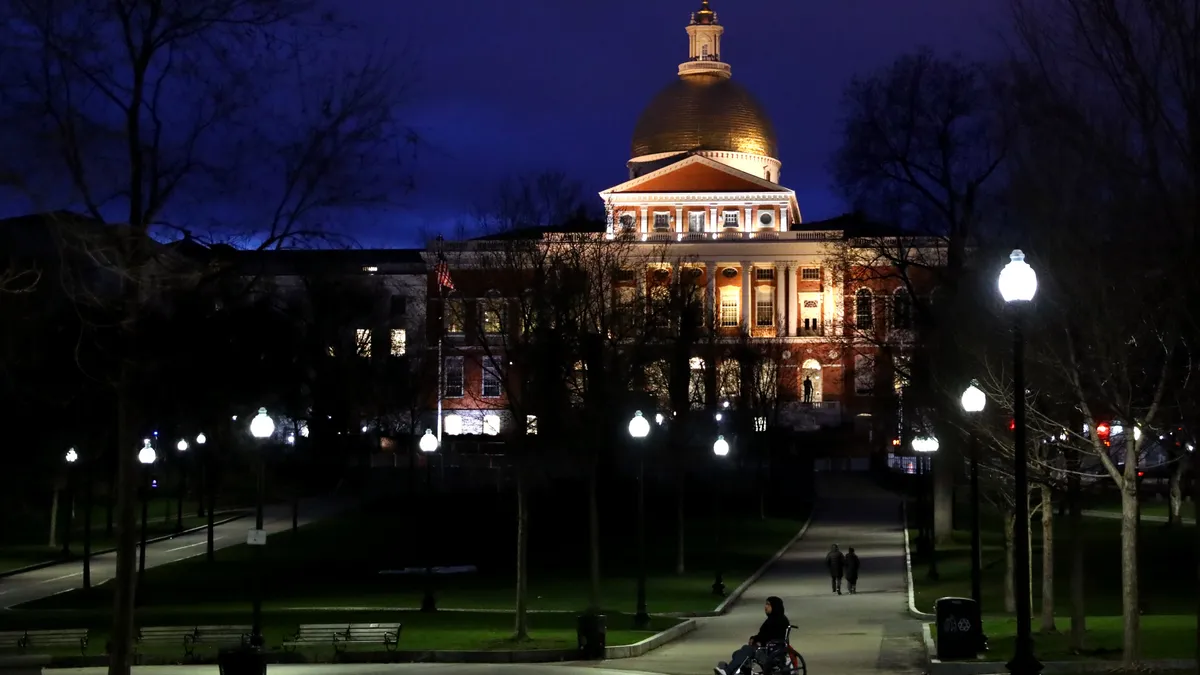Dive Brief:
-
Massachusetts legislation that would drastically boost funding for public colleges has gained significant support among state lawmakers.
-
Dozens of legislators have signed onto the Cherish Act, which would send more than $500 million in additional funding to public colleges annually over five years.
-
The bill sponsors say it means to correct middling state investments in postsecondary education that has resulted in students bearing more costs.
Dive Insight:
Supporters of the proposed legislation have promoted it by referencing a 2014 report from the Higher Education Finance Commission, a group including college presidents, lawmakers and other education officials that studied the state's higher education funding model.
The commission found state appropriations per full-time equivalent student peaked at $12,184 in fiscal year 2001. Public higher education funding has fallen about 30% since that year, according to the bill's chief sponsor in the Senate, state Sen. Jo Comerford, a Democrat.
As state funding dropped, colleges raised students' tuition and fees to compensate, according to the commission. Public schools, including community colleges, increased mandatory fees by 53% from fiscal 2005 through fiscal 2014, the report states.
The Cherish Act's proponents said it would rectify these problems by requiring the state to fund public institutions to at least the per-student amount during fiscal 2001, after adjusting for inflation. This would occur over a five-year schedule that would begin in fiscal 2022.
Public colleges would also have to freeze tuition and fees through fiscal 2026, but only if the state continued to fund them at the levels the bill mandates.
The bill has attracted significant support, with at least 80 state representatives and about 30 state senators endorsing it, according to the Massachusetts Teachers Association, which is also backing the proposal. It has been introduced previously but never passed the legislature.
Higher ed funding in many states has become much more uncertain amid the economic turmoil of the coronavirus pandemic. While state money for postsecondary ed rose nearly 3% in fiscal 2020, according to the State Higher Education Executive Officers Association, it is expected to decline in most states in fiscal 2021. Massachusetts was was at about the U.S. average on a funding per student basis in 2020, SHEEO found.














